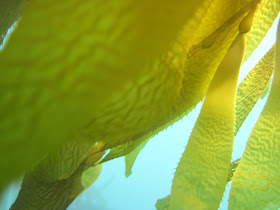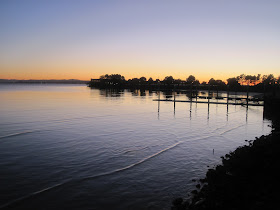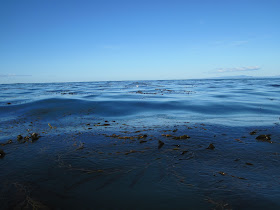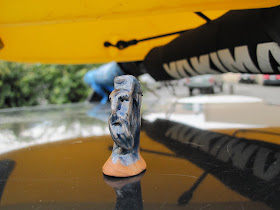Art, Book reviews, Ceramics, Photographs, Postcards, Quick Fiction, Quotations, and (Usually Aquatic) Reflections. (P.S. This blog looks better in the web version.)
Thursday, January 31, 2013
Wednesday, January 30, 2013
Road Map? (RIP, Jackie Leven)
"The road from intensity to greatness passes through sacrifice."
--Rudolf Krassner,
quoted in the liner notes
to Jackie Leven's Forbidden Songs of the Dying West.
Here's a bit of Jackie Leven's intensity for you:
click this LINK for "Classic Northern Diversions"--
arterial intensity from the first chord, the first word . . . .
RIP, Jackie Leven.
61 years wasn't enough.
We want more . . . .
Thank you for what you've given.
Thank you to Ian Rankin, Scottish novelist and good guy, for talking about Jackie Leven, the man and his music and the friendship between you, at Book Passage in Corte Madera, Marin County, CA.
--Rudolf Krassner,
quoted in the liner notes
to Jackie Leven's Forbidden Songs of the Dying West.
Here's a bit of Jackie Leven's intensity for you:
click this LINK for "Classic Northern Diversions"--
arterial intensity from the first chord, the first word . . . .
RIP, Jackie Leven.
61 years wasn't enough.
We want more . . . .
Thank you for what you've given.
Thank you to Ian Rankin, Scottish novelist and good guy, for talking about Jackie Leven, the man and his music and the friendship between you, at Book Passage in Corte Madera, Marin County, CA.
Tuesday, January 29, 2013
Sunday, January 27, 2013
"Oh Malachi Malarkey" (Poetry)
OH MALACHI MALARKEY
When the ropes of reason slacken
When the veils of prudence thin
Then intuition beckons
Then souls fit skin to skin
Hope can be so brittle
Clay not fired to the core
Well-thrown bowls roughly handled
Scattered shells along the shore
Now there's a measure in the offing
Now the surges swell with pride
Say, is this canny craft a coffin?
Say, may your reach not fall too shy
Oh, Malachi Malarkey
Oh, Sophia Sophrosyne
Heed the reefs not yet charted
Seek that green isle beyond design
--MD
(the latest attempt to play with verse and not just savor, not just quote)
If I manage to compose enough poems for a collection, I'm thinking of calling it "Shore Leave," as this post was originally entitled.
Saturday, January 26, 2013
Ian Rankin and Jackie Leven
Ian Rankin is a funny, thoughtful, and gracious man. Approachable and genuine; very cool. He works a room well, which he told me had to do with practice over time.
Here is a link with a few words from Ian Rankin on the newest Rebus novel and singer Jackie Leven, a welcome discovery for me.
Here is a link with a few words from Ian Rankin on the newest Rebus novel and singer Jackie Leven, a welcome discovery for me.
Mirror
"I have a jumbled mind that only achieves clarification at times and then under pressure, as in a classroom. Then the material provides the unity; the random insights."
--Theodore Roethke
--Theodore Roethke
Friday, January 25, 2013
Thursday, January 24, 2013
Caption? "Dude, Where's My Kayak?"
Or, "Paddles at dawn!"
(With a nod to SC.)
An old shot. 2008 or, most likely, 2009? I picked up that shirt in Hawaii in 2008 with Keith . . . .
(I've been ill with a sore throat and a general achiness today, and so I've been taking solace in memories of past fun and folly.)
(With a nod to SC.)
An old shot. 2008 or, most likely, 2009? I picked up that shirt in Hawaii in 2008 with Keith . . . .
(I've been ill with a sore throat and a general achiness today, and so I've been taking solace in memories of past fun and folly.)
Tuesday, January 22, 2013
Lord Byron: "My Mind Is A Fragment"
Happy 225th, Lord Byron! The portions of this entry will move fragmentally, in honor of his Lordship.
200 years ago today, Lord Byron turned 25, footloose, if not exactly carefree in London. I've been reading around in his letters, his journal from later in 1813, and a bit of poetry composed around that time to enjoy Byronic wit, self-absorption, and poetic talent. I want to share a few bits from (or about) Byron's “The Giaour: A Fragment of a Turkish Tale,” composed in pieces, fragmentary by design, from later in his 25th year, 1813, begun in March and published in early June. ["Giaour" rhymes with "tower".]
Opening Lines: No breath of air to break the wave
That rolls below the Athenian’s grave,
That tomb which, gleaming o’er the cliff,*
First greets the homeward-veering skiff,
High o’er the land he saved in vain—
When shall such hero live again?
*A tomb above the rocks on the promontory, by some supposed the sepulcher of Themistocles. [Byron’s note]
My note: The concern for the missing hero, the lost hero, the failed hero haunts the works, poetic and dramatic. Byron’s excellent Don Juan opens with a call for a hero too, for none of the potential heroes of the period really qualify; he is forced to turn to the old seducer Don Juan (which for Byron & the English of the time rhymes, quixotically perhaps for us, with “true one").
A favorite passage:
The Mind, that broods o’er guilty woes,
Is like the Scorpion girt by fire,
In circle narrowing as it glows
The flames around their captive close,
Till inly search’d by thousand throes,
And maddening in her ire,
One sad and sole relief she knows,
The sting she nourish’d for her foes,
Whose venom never yet was vain,
Gives but one pang, and cures all pain,
And darts into her desperate brain.—
So do the dark in soul expire,
Or live like Scorpion girt by fire;**
So writhes the mind Remorse hath riven,
Unfit for earth, undoom’d for heaven,
Darkness above, despair beneath,
Around it flame, within it death!—
**Alluding to the dubious suicide of the scorpion, so placed for experiment by gentle philosophers. Some maintain that the position of the sting, when turned towards the head, is merely a convulsive movement; but others have actually brought in the verdict ‘Felo de se’. The scorpions are surely interested in a speedy decision of the question; as, if once fairly established as insect Catos, they will probably be allowed to live as long as they think proper, without being martyred for the sake of an hypothesis.
My note: I like the contrast between the poetic and the prosaic, between the melodramatic verse and the contrasting skeptical/satirical explanation.
Finally, a line from Byron's journal of 1813:
For my part, I adhere (in liking) to my Fragment. It is no wonder that I wrote one -- my mind is a fragment.
--Byron's Letters & Journals: Volume 3: 1812-1814 -- 'Alas! The Love Of Women!',
edited by Leslie A. Marchand,
Harvard University Press: Cambridge, MA,
1974.
Lively Water
I love when the water's lively like this, but then I'm a free diver by nature or maybe just a swimmer, in cases like this one. Flat days are fine, and helpful when tanking, but there are too many flat days every year.
Surge is good, I say. Let there be engagement. I like when the water pushes back, pushes hard; I like working against and with the flow, particularly the latter. Whether free diving or kayaking, give me some texture, some liveliness, and I'm a happy fellow.
The picture tells the story better than my words. Doesn't that look fun?
Surge is good, I say. Let there be engagement. I like when the water pushes back, pushes hard; I like working against and with the flow, particularly the latter. Whether free diving or kayaking, give me some texture, some liveliness, and I'm a happy fellow.
The picture tells the story better than my words. Doesn't that look fun?
Monday, January 21, 2013
Sunday, January 20, 2013
The Behavior Of Water
Or, The Surface Matters.
This shot captures one reason I free dive: the surface. When I tell folks that I free dive, they want to know how deep I go and how long I can hold my breath. When I tell folks that I snorkel, they don't take me seriously as a diver and start talking as if I'm a tourist who has never worn flippers before. (I've worn flippers out, let me tell you.) I used to say "snorkel" just to see what would happen, but I have tired of the disrespect. I'm a diver, yes, but I spend a lot of my time at the surface and/or interacting with the first few feet of water. It's warmer up there too, by the way. Maybe I'm just a swimmer . . . but I do like following the fish around down below.
Thought not quite plumbed here.
This shot captures one reason I free dive: the surface. When I tell folks that I free dive, they want to know how deep I go and how long I can hold my breath. When I tell folks that I snorkel, they don't take me seriously as a diver and start talking as if I'm a tourist who has never worn flippers before. (I've worn flippers out, let me tell you.) I used to say "snorkel" just to see what would happen, but I have tired of the disrespect. I'm a diver, yes, but I spend a lot of my time at the surface and/or interacting with the first few feet of water. It's warmer up there too, by the way. Maybe I'm just a swimmer . . . but I do like following the fish around down below.
Thought not quite plumbed here.
"An Empty Boat . . ."
An empty boat
will volunteer for anything.
--Jim Harrison and Ted Kooser,
from their collection Braided Creek.
Of course, one can appreciate the literal quality, the image of an actual boat just waiting, that call to adventure, or one can move metaphorically, the sense of the self as an empty vessel just available, that potential call to misadventure. Or both.
(I love that small book: Braided Creek.)
will volunteer for anything.
--Jim Harrison and Ted Kooser,
from their collection Braided Creek.
Of course, one can appreciate the literal quality, the image of an actual boat just waiting, that call to adventure, or one can move metaphorically, the sense of the self as an empty vessel just available, that potential call to misadventure. Or both.
(I love that small book: Braided Creek.)
Saturday, January 19, 2013
Friday, January 18, 2013
Wednesday, January 16, 2013
Crossley-Holland's "Idling"
IDLING
The way waves fold into themselves, sigh, then
play themselves out high on the foreshore,
a man draws and redraws the crescent contours
of the salt-woman he loves to draw to love.
--Kevin Crossley-Holland
P.S. There are riddles here that I am working to work out; the images and unfolding of the lines draw me in here.
Crossley-Holland is a renowned translator of Anglo-Saxon riddles, a popular genre in the medieval period, among others. His own poetry, as above, often shows such trickster influence.
Tuesday, January 15, 2013
Shadows of the Past: Advice
"Think harder; write better."
--from one of my favorite professors to the English 47B class as a whole; he was a tad frustrated with the first essays we had handed in . . . .
"Don't indulge your natural diffidence."
--from a professor after a mock-interview back in the graduate school days; spot on, by the way.
"Be wary of that tendency to idealize, to see the best qualities and to be oblivious to all others."
--note to self, echoed by a therapist
I'm finding myself reflecting on the advice, the possible wisdom or useful statements, that I've encountered or confronted. These three stand out, though I have no doubt forgotten even better advice that I have failed to benefit from; to those advisers who meant well for me, I wish I'd been paying closer attention.
(I think that last piece of advice was/is meant to be applied to myself by myself too.)
P.S. A good friend who was there corrects me:
'And, I think it was: "Think harder, write better, be smarter."'
--from one of my favorite professors to the English 47B class as a whole; he was a tad frustrated with the first essays we had handed in . . . .
"Don't indulge your natural diffidence."
--from a professor after a mock-interview back in the graduate school days; spot on, by the way.
"Be wary of that tendency to idealize, to see the best qualities and to be oblivious to all others."
--note to self, echoed by a therapist
I'm finding myself reflecting on the advice, the possible wisdom or useful statements, that I've encountered or confronted. These three stand out, though I have no doubt forgotten even better advice that I have failed to benefit from; to those advisers who meant well for me, I wish I'd been paying closer attention.
(I think that last piece of advice was/is meant to be applied to myself by myself too.)
P.S. A good friend who was there corrects me:
'And, I think it was: "Think harder, write better, be smarter."'
Monday, January 14, 2013
Shapely Seas
The swell faded, so that Saturday allowed easy kayaking --as I'm a bit out of shape-- but still held a few surprises and, mostly, offered plenty to admire, paddle by paddle by paddle. But then I'm fairly easily pleased out there.
Sunday, January 13, 2013
Otters, Curious
I saw 12-15 otters yesterday while paddling off Lover's Point in Pacific Grove, CA. I say 12-15 for I kept my distance, as one should, and can't confirm all of the sightings. #13 or 16, for example, was a small log, when I drew much closer. At another point, one fellow surfaced suddenly, chirped strongly at me, and dove down so fast I only had that cry and a sense of a furry brown head, but harbor seals and sea lions don't chirp like that.
(A fading swell helped make the paddling a little fun too; I dislike lakey, flat conditions, but that swell also kept me from poking in among the shore rocks and surge channels too.)
Saturday, January 12, 2013
Playing Pirate
Or, Winter White, Monterey-Style.
After kayaking on a bright January day.
Pacific Grove, CA.
(Self-Portrait #51+)
After kayaking on a bright January day.
Pacific Grove, CA.
(Self-Portrait #51+)
Thursday, January 10, 2013
Crossley-Holland: Do You Ken?
SALT- COMPOUNDS
salt-scythe
sweeps onshore, corrosive and hissing; pins back
ears; rifles each stay, shroud and halyard.
creek-wood
the old ones, clinker-built and always thirsty;
noses blunt and bottoms glaucous; still quivering.
sea-garment
roseate spinnaker, light-breasted; no less
stiff canvas, often split and mended, grey with salt.
herring-haunt
see-through escarpments toppling and barking
as they dive through themselves into ghosts of flint.
mauve-mist
delicate as breath suspended over marsh grass;
summer carpet, wiry and tide-beaten, knotted in mud.
wave-arms
without joints, creaking and groaning; like wings
their strange spade hands salute and dip and rise.
mud-runes
ribbon-casts, blow-holes, keel-scrapes, anchor-spikes,
darts of the stitchers and strutters and mincers.
--Kevin Crossley-Holland
from his Selected Poems,
London: Enitharmon Press, 2001
Wednesday, January 9, 2013
To Em--: Shark-Dream (& Of Fear)
I
Em--
I'll do a quick description of this latest shark dream/nightmare:
I was free diving up and down in the ocean, but the visibility was great and there were all sorts of people diving with tanks and doing stuff, odd stuff, like grilling fish underwater with cars anchored in the water, parked, floating, and such.
In the dream, I swam all the way down to the bottom here, and people were impressed and I was happy with that, but I really needed to head up, and I paused to accept a bit of underwater-grilled salmon from one of my students this term, an older fellow who was the nicest guy AND had faced great adversities, and I swam up and pulled myself onto the roof of this floating car, anchored with a giant chain to the bottom, but floating, sort of, with the car top at the surface.
I pull myself out and sprawl across the top of the car, enjoying my grilled salmon. (Underwater grilling?) Then, the shadow of a large shark--tiger shark, I think, but definitely not a great white shark, but big and aggressive and commanding--swims below. I can't really see very well from the car top, and I'm lying down and putting my face in the water trying to see the shark, worrying about all those tank divers and my student, etc, but the car keeps tipping and I'm worried it's going to lose whatever air is holding it up in place and that it will sink, and the shark is circling around and around.
I keep having to shift position, and I can't keep the shark in sight, and I am wondering if I should swim to somewhere else, but I'm the only free diver and I'll be silhouetted, and ... and ... and... I'm pretty worried, but I'm worried about everyone else a bit more than myself (which is a good feeling) and then
the shark is pushing against the leg I've got hanging off the side of the floating car, pushing against me, not biting, but maybe he's grabbing at someone below, so I'm beating the shark's body where I can reach it, beating and beating with my clenched fist, and I reach for my small dive knife, and
I wake up gasping.
A fairly usual night of dreaming for me.
II
Oh Em--,
I'm not that cool, though I aspire to be. I'm a bit afraid of being afraid. And, so far in life, I hope that I've stepped up as needed, not let fear get in the way. (Maybe I'm not remembering the failures right now, but still hoping to not let fear take over in the future.)
I know that my imagination can be so strong that I have to ignore it or overpower it sometimes, and yet I also try to stay true to my intuition. Case: if it's feeling sharky out there, what do I do? Resist the over-imagination or respect the intuition? Can I tell which is which?
If I've been relaxed up until the sharky thoughts start coming in, I tend to respect the anxiety. I'll keep diving or paddling and keep checking the vibe. Finally, if I can be a little relaxed and yet still feel the sharkiness coming, I'll go in to shore or I'll not dive over the side. That's been an issue two or three times, and once I was solo in a very remote place, so it seemed wise to respect the feeling.
If I am imagining too much on the drive to the site, or I've been watching Jaws or something, I'll work harder to resist the fear. I'll push further just to test myself. Unless I've psyched myself out completely. Then, I'll do 20 or 30 minutes and head in. Only happened twice so far, ever.
Most of the time, I have no thoughts or just one or two thoughts of sharks, I knock wood on my head, and I keep diving or paddling.
--MD
Non-fiction: two passages from the correspondence I've had with a friend, lightly edited. Gist--or roughish notes, in both cases. I'm posting now not to lose the material, essentially, for I know I'll come back here and want to edit and revise for more accurate vision, more attentive assessments.
Crossley-Holland: "Faithful As A Wordfisher"
BEACHCOMBER
Faithful as a wordfisher,
there he goes, old magpie of the foreshore!
Face chafed and chapped like driftwood.
Parcelled shapeless against
winds straight off the icecap
but look! agile even so, jumpy as a tick,
quick in his pickings.
Scoofs along the tideline scurf,
his oily sack full of consonants:
hunks of wax,
and seacoal, rubber ballast, cork,
sodden gleamings.
And swinging in that shoe-bag hitched
to his broad belt?
Ah! In there, sunlight and amber moonlight,
emerald and zinc and shell-pink,
Aegir's vowels.
--Kevin Crossley-Holland
from the sequence "Waterslain"
from his Selected Poems,
London: Enitharmon Press, 2001
Note: I can't say that I follow all the lines above, but the general situation and the definite fun with language and scene I follow quite well.
And, "Faithful as a wordfisher": that's a description I like, using "as" both as a comparison and as a signifier of action/behavior. Starting Monday I wordfish with whole crowds of new students.
Tuesday, January 8, 2013
Study Session
"The labor we delight in physics pain."
--Macbeth from Macbeth (2.3.46)
I believe it's best to take that line out of context.
Byron: "My Soul Is Dark"
I
My soul is dark -- Oh! quickly string
The harp I yet can brook to hear;
And let thy gentle fingers fling
Its melting murmurs o'er mine ear.
If in this heart a hope be dear,
That sound shall charm it forth again:
If in these eyes there luck a tear
'Twill flow, and cease to burn my brain.
II
But bid the strain be wild and deep,
Nor let they notes of joy be first:
I tell thee, minstrel, I must weep,
Or else this heavy heart will burst;
For it hath been by sorrow nursed,
And ached in sleepless silence long;
And now 'tis doomed to know the worst,
And break at once -- or yield to song.
--Lord Byron
My soul is dark -- Oh! quickly string
The harp I yet can brook to hear;
And let thy gentle fingers fling
Its melting murmurs o'er mine ear.
If in this heart a hope be dear,
That sound shall charm it forth again:
If in these eyes there luck a tear
'Twill flow, and cease to burn my brain.
II
But bid the strain be wild and deep,
Nor let they notes of joy be first:
I tell thee, minstrel, I must weep,
Or else this heavy heart will burst;
For it hath been by sorrow nursed,
And ached in sleepless silence long;
And now 'tis doomed to know the worst,
And break at once -- or yield to song.
--Lord Byron
Sunday, January 6, 2013
Macbeth Underwater
I'm trying to cut back on my book-buying, so about an hour ago I was faced with a dilemma. In my right hand, I was holding Antonia Fraser's history of the Gunpowder Plot (which I will refer to tangentially when I teach Macbeth this term); in my left hand, I was holding the Diving and Snorkeling Guide to Scotland. I also had tucked under my left elbow a book about 18th-century England that I'd already decided was necessary and inexpensive enough to buy (for another class).
In the spirit of adventure, of Macbeth Underwater, I chose the diving guide, though I'm already noticing that drysuits are preferred over wetsuits -- sure, cold cold water -- and that snorkeling or diving in Loch Ness is not recommended (too silty, too little visibility; no warnings about monsters).
(There's always later in the week for the Gunpowder Plot . . . .)
There may be some broad hints toward that book-plot I've been wrestling with . . . Macbeth Underwater . . . .
In the spirit of adventure, of Macbeth Underwater, I chose the diving guide, though I'm already noticing that drysuits are preferred over wetsuits -- sure, cold cold water -- and that snorkeling or diving in Loch Ness is not recommended (too silty, too little visibility; no warnings about monsters).
(There's always later in the week for the Gunpowder Plot . . . .)
There may be some broad hints toward that book-plot I've been wrestling with . . . Macbeth Underwater . . . .
Trickster: Glimpses
(I've posted shots of this live model exercise at various times in this blog; if you are interested, please use the label-link "Trickster" below.)

















































